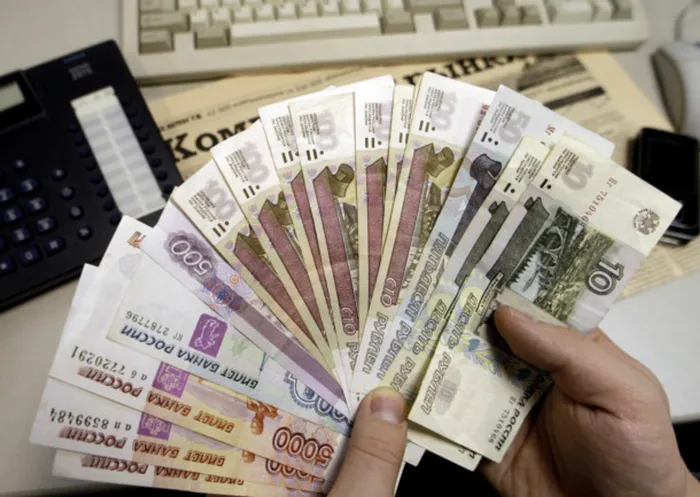Russian rouble's plunge resumes

Picture: Reuters Picture: Reuters
Moscow - The rouble resumed its dramatic slide on Tuesday, a day after the Russian central bank floated the currency that has been driven sharply lower by falling oil prices and economic sanctions imposed over Russia's policy in Ukraine.
Stability for the currency is one of the main achievements of President Vladimir Putin's 14-year rule, and its slide has revived memories of the currency collapse that shut banks and wiped out the savings of Russians a year before he took power.
The currency has lost nearly 30 percent of its value against the dollar so far this year, most of that in the last three months as sanctions made it harder for banks and companies to refinance debts and tumbling oil prices hurt government revenue.
A new threat to a two-month-old ceasefire in eastern Ukraine has hurt hopes that sanctions could be lifted soon.
Western countries say that Putin has dispatched more troops to the frontier with his neighbour in recent days and sent armoured columns to defend enclaves the Kremlin now calls “new Russia”.
Moscow denies its troops operate in Ukraine, although some Russian soldiers have died fighting there.
German Chancellor Angela Merkel said on Tuesday there were no plans at present for further economic sanctions on Russia, but there have also been few signs of them being lifted soon.
The Russian central bank is trying to avert a repeat of the rouble crash of 1998, which bankrupted the country's financial system, impoverished its citizens and led to a period of political turmoil that ended when Putin took power a year later.
The bank has a huge $430 billion (R4.8 trillion) cash pile of reserves.
But even that has limits, and after spending as much as $2.5 billion a day to prop up the currency in recent weeks it announced last week that it would halt regular interventions.
On Monday it officially set the currency free to float, saying it would now target inflation rather than the exchange rate, a step it had planned anyway by the end of the year.
Although regular interventions will stop, the bank said it would keep the market in check and punish those betting against the rouble by carrying out large, ad hoc interventions.
On Tuesday, the rouble lost around 1.4 percent against the dollar by late afternoon, falling to 46.50 roubles per dollar after gains in the previous two sessions.
It lost 1.8 percent to trade at 57.79 versus the euro.
Larger earlier losses were trimmed after Merkel's comments and after the central bank said it would impose a new daily limit of the equivalent of $2 billion on the amount of roubles it would lend short term to banks for currency swaps.
The measure could support the rouble by restricting funds used to buy dollars.
Banks have usually sought less than $2 billion per day through the facility in the past.
The central bank said the limit would remain until the end of the month.
The currency was still above a record 48.65 to the dollar set during wild swings on Friday, with traders now cautious about testing the bank's firepower, especially after Putin promised to avert a crash.
“The rouble gained yesterday on verbal interventions from officials including President Vladimir Putin, but those words have to be followed up by action. The market still expects more from the central bank,” said Yury Tulinov, head of research for capital markets and investment banking at Rosbank.
The central bank, Putin and Prime Minister Dmitry Medvedev have all spoken in support of the rouble in recent days, blaming speculation by private banks for its slide.
Medvedev told a government meeting on Tuesday there were no fundamental reasons for the rouble to weaken further and ruled out restrictions on foreign currency sales.
SLIDING GROWTH
The rouble was also pushed down by further falls in the oil price, hurting a country that relies for most of its income on energy exports.
Brent crude was off more than half a percent by Moscow's late afternoon.
Analysts also said demand for dollars remained high, given sanctions restricting Russian firms' access to international capital markets.
Companies need dollars to meet an onerous foreign debt repayment schedule before the end of the year.
The central bank has already raised its key interest rate by a cumulative 400 basis points this year and has spent over $70 billion in interventions to defend the currency and curb capital flight.
On Monday, the bank cut its economic growth forecasts to almost zero for this and the next two years and predicted sanctions would remain in place until the end of 2017.
David Kohl, a forex analyst at Swiss bank Julius Baer, was even more pessimistic, saying his bank saw an economic contraction of 0.5 percent in Russia next year.
“Russia's confrontational policies in Ukraine have worsened fundamental headwinds, and the most recent decline in oil prices has removed the last supporting pillar for the currency.” - Reuters